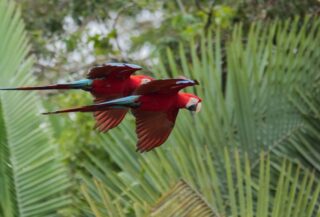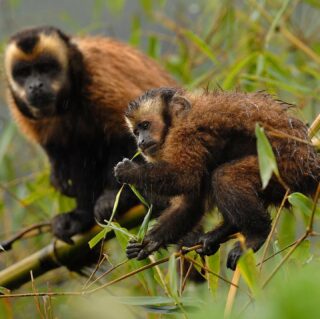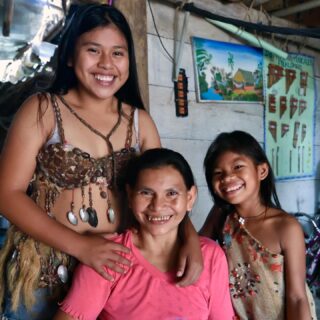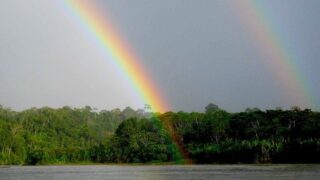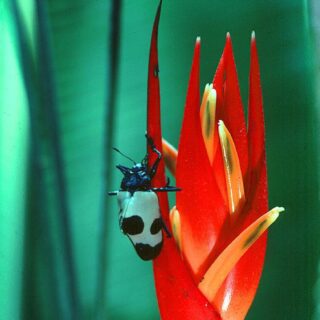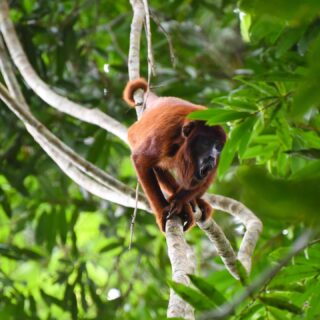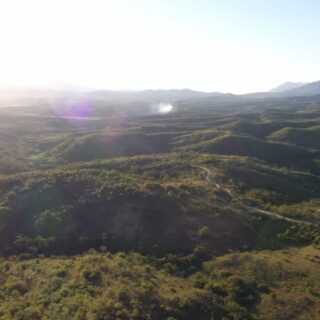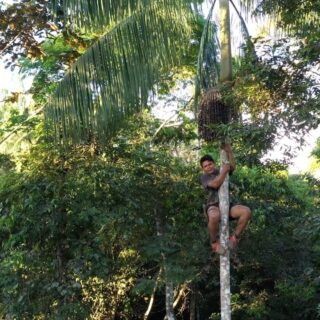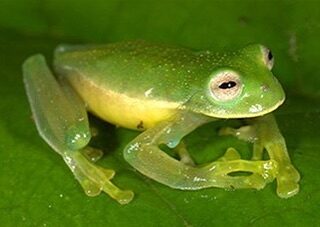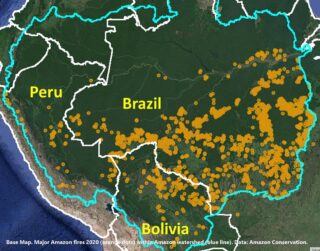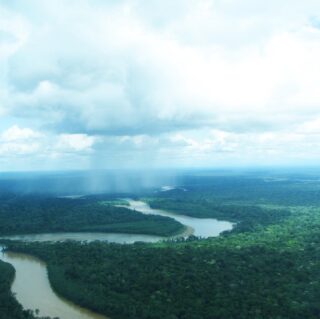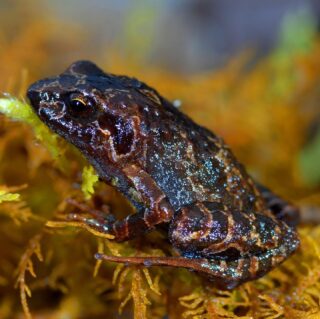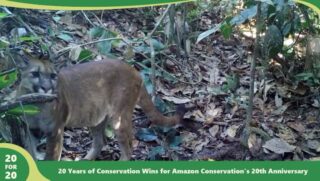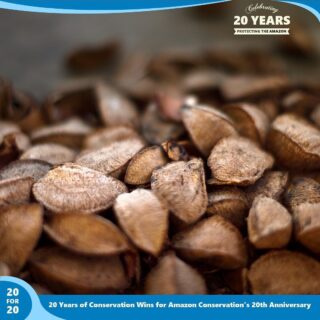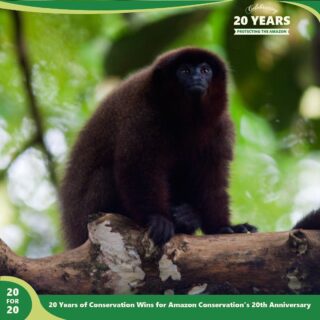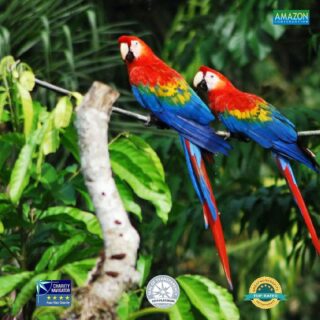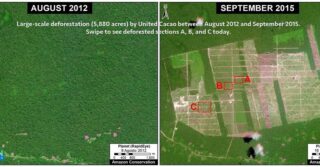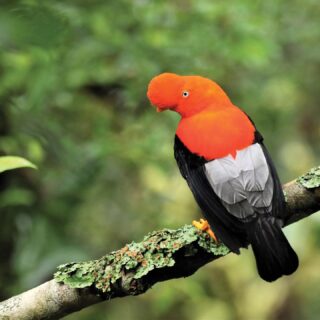New Wildlife Conservation Laboratory Launched at Los Amigos Biological Station will Monitor Wildlife Health, Zoonotic Diseases Risks
July 15, 2021
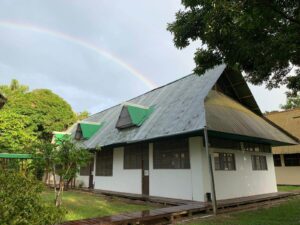 Our Los Amigos Biological Station, located in the Peruvian Amazon, has inaugurated a new conservation technology lab that will conduct advanced wildlife tracking, conservation genomics, safe pathogen screening, and toxicology monitoring of key species in the Amazon. This targeted biodiversity monitoring will enable us to gather key information on zoonotic diseases and transmission risks, helping support government health agencies and protecting local people – and, in our globalized world, people everywhere – from diseases that cross the human-wildlife interface.
Our Los Amigos Biological Station, located in the Peruvian Amazon, has inaugurated a new conservation technology lab that will conduct advanced wildlife tracking, conservation genomics, safe pathogen screening, and toxicology monitoring of key species in the Amazon. This targeted biodiversity monitoring will enable us to gather key information on zoonotic diseases and transmission risks, helping support government health agencies and protecting local people – and, in our globalized world, people everywhere – from diseases that cross the human-wildlife interface.
By safely taking DNA samples of wildlife and domestic animals in the region – without harming or killing any animals and following strict security protocols – scientists at the Wildlife Conservation Laboratory will monitor the health and disease status of a range of species, including frogs, snakes, and monkeys. To achieve this, some of the scientific activities carried out at the Laboratory will include sample biobanking, expanding barcode of life reference libraries for the Amazon rainforest, field testing pathogens and environmental contaminants, and developing sequencing solutions for population monitoring of key species.
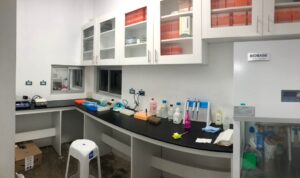 The Laboratory will also create a conservation technology “makerspace,” that is, a space for inventing new technologies, innovating current ones to be used for conservation, and piloting novel models. For instance, the first custom device researchers will work on will be a wildlife GPS tracking device much more lightweight, low-cost, and long-lasting than the ones currently in existence. The device will take advantage of a new long-range forest mesh network and have wildlife microchip reading stations, enabling scientists to track down wildlife movement in a similar way that toll roads track cars through the EZ-Pass system.
The Laboratory will also create a conservation technology “makerspace,” that is, a space for inventing new technologies, innovating current ones to be used for conservation, and piloting novel models. For instance, the first custom device researchers will work on will be a wildlife GPS tracking device much more lightweight, low-cost, and long-lasting than the ones currently in existence. The device will take advantage of a new long-range forest mesh network and have wildlife microchip reading stations, enabling scientists to track down wildlife movement in a similar way that toll roads track cars through the EZ-Pass system.
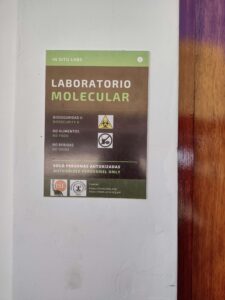 With the addition of this Laboratory, we are creating a community-based model for monitoring biodiversity and wildlife health that can be replicated on a global scale, by using the novel approach of the In Situ Lab (ISL) initiative. “What is great about In-Situ Labs like this is that it’s not a top-down effort,” highlights Dr. Mrinalini Erkenswick Watsa, lead scientist in the project, “The lab will engage with and be adopted by local partners thanks to the affordability and ease-of-use of the technology and methodology being developed in the field.”
With the addition of this Laboratory, we are creating a community-based model for monitoring biodiversity and wildlife health that can be replicated on a global scale, by using the novel approach of the In Situ Lab (ISL) initiative. “What is great about In-Situ Labs like this is that it’s not a top-down effort,” highlights Dr. Mrinalini Erkenswick Watsa, lead scientist in the project, “The lab will engage with and be adopted by local partners thanks to the affordability and ease-of-use of the technology and methodology being developed in the field.”
Another innovative aspect of the Laboratory is that all methods on how to acquire data and conduct analysis data created at the lab will be openly shared on protocols.io and Github for other scientists to use. The data produced at the lab will also be freely shared in other public online repositories, such as the public data servers BOLD and NCBI, all coordinated through the In Situ Labs project website.
This initiative, launched in October 2020, is a collaboration between several academic and nonprofit organizations, including Amazon Conservation, Conservación Amazónica – ACCA, the San Diego Zoo Wildlife Alliance, Field Projects International, Washington University in Saint Louis, and the LOEWE-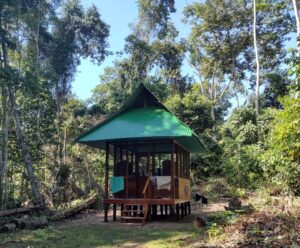 Centre for Translational Biodiversity Genomics at the Senckenberg Museum. This project is made possible thanks to the generous financial support of the Gordon and Betty Moore Foundation to the San Diego Zoo Wildlife Alliance and to Amazon Conservation Association.
Centre for Translational Biodiversity Genomics at the Senckenberg Museum. This project is made possible thanks to the generous financial support of the Gordon and Betty Moore Foundation to the San Diego Zoo Wildlife Alliance and to Amazon Conservation Association.
With the finalization of the Laboratory’s construction, these partner organizations will now launch pilot projects to develop protocols and methodologies. The initiative aims to create a model for a decentralized, community-based One Health laboratory network within two years.
For more information about the Wildlife Conservation Laboratory or if you’re interested in visiting our Los Amigos Biological Station, please contact info@amazonconservation.org

